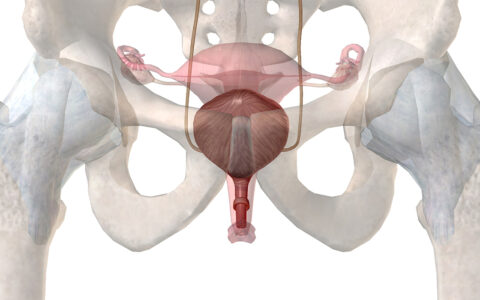Murine models are mirroring epidemiological observations that maternal diabetes puts developing fetuses at high risk for cardiovascular complications.
Rolanda Lister, M.D., an assistant professor of obstetrics and gynecology at Vanderbilt University Medical Center, is first author on a study published in the Diabetes and Obesity International Journal examining the effects of cardiac gene regulation in fetal development. The most novel aspect of the work is the focus on epigenetics underlying the increased risk of heart defects in offspring born to mothers with uncontrolled pre-gestational diabetes.
In the Journal of the American Heart Association, Lister previously showed epigenetic programming of cardiac genes is critical to normal cardiac development and is disrupted in the presence of pre-gestational diabetes.
“I was interested in why maternal diabetes leads to heart defects in the offspring,” Lister said. “My hypothesis was that even though the cardiac genes themselves are not mutated, epigenetic factors cause them to be expressed in a different way.”
“It all starts in utero,” she said. “One of the things that drew me to maternal fetal medicine in general is the idea that the programming that happens in utero can have longstanding cardiovascular effects on subsequent generations. I wanted to work at curbing these problems at the root level.”
Impact on Heart Structure
Lister’s most recent two-pronged, controlled study explored the impact of untreated diabetes on the fetal heart of mice. One prong looked at morphology. In studies of humans, maternal diabetes has been shown to increase a baby’s risk of congenital heart defect by five-fold, Lister said. These defects include transposition of the great arteries, single ventricle, hypoplastic left heart syndrome, septal defects and endocardial cushion defects, among others.
“The programming that happens in utero can have longstanding cardiovascular effects on subsequent generations.”
Lister and colleagues found murine outcomes closely matched the epidemiological data in humans. Twenty-eight percent of pups of hyperglycemic mothers experienced cardiac structural defects, compared to just seven percent of controls.
It’s in the (Epi)Genes
The other research prong examined DNA methylation as a suppressor of gene expression in the pups, a mechanism believed to be the most powerful influence on gene expression. “When we think about heart defects, we often think of genetic causes like Down’s or DiGeorge syndromes,” Lister said. “But with maternal diabetes, it’s not about a mutation, but about how the genes are expressed – turned on and off – during critical periods of development. If the internal environment is hyperglycemic, that changes the epigenetics of the embryonic and fetal development.”
They discovered that in hyperglycemic mouse mothers, methyl groups attached in high volume to a promoter region rich in cytosine and guanine. This prevented other transcription factors from locating that region and activating the DNA. “Effectively, these molecules were silencing that gene transcription,” Lister said.
As a result, during a developmental period considered critical for normal formation of the heart, those genes were expressed differently. This demonstrated that the epigenetic changes, the DNA methylation that happened in utero, ultimately led to differences in gene expression that, in turn, affected heart development.
Pre-gestational Counseling
Lister’s practice focuses on high-risk issues in pregnancy, and a significant proportion of her patients are diabetic. “The risks have never been greater than they are now,” she said. “The epidemic of obesity is not abating, and about a third of the population with diabetes are not even aware that they have it.”
Further, about half of pregnancies in the United States are unplanned. In human pregnancies, Lister says embryonic development of the heart starts as early as six weeks, and the structure is completed by 12 weeks. So, by the time many women know they are pregnant, the heart has already started to form.
“My number one message to these women is that the way their diabetes is controlled before pregnancy has a direct effect on the cardiac complications their baby is likely to face during development,” Lister said. “Our biggest goal is to make sure that the hemoglobin A1C is at a normal range prior to pregnancy. In addition to that, we need to educate moms that the utero environment really does have the potential to program that child for not only cardiac defects but, long term, for cardiovascular disease as well.”
Lister says improving glycemic control before pregnancy and folic acid supplementation compose the existing arsenal against congenital heart defects for these babies, while researchers continue to explore additional therapeutic intervention options.
Beyond Structural Defects
Lister also is investigating potential cardiovascular problems that affected offspring may encounter. Her group is conducting a longitudinal study of pups of hyperglycemic mice relative to their postnatal heart function, including ejection fraction, ventricle wall thickness and cardiac output.
She says the early work indicates that these offspring, even when they don’t have cardiac defects, develop cardiac hypertrophy and other cardiomyopathies that persist into adulthood. They will explore further to determine whether these problems have their roots in the same epigenetic programming that causes heart defects.





